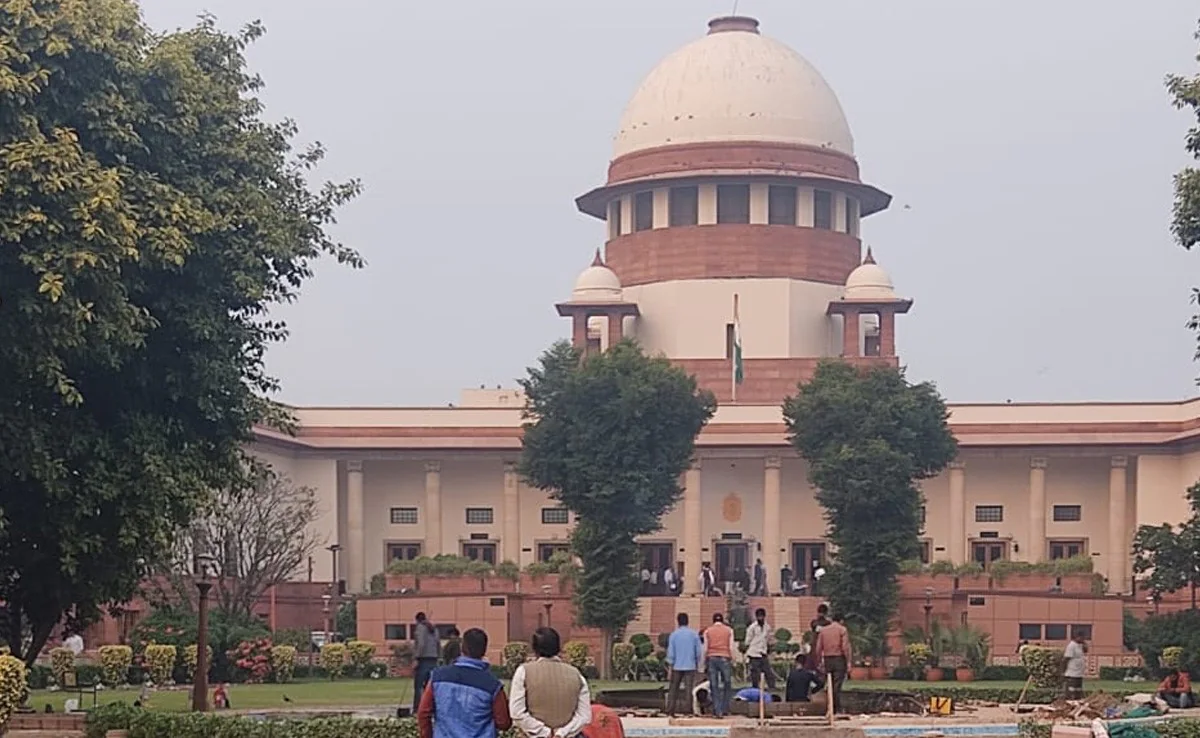


A petition has been filed in the Supreme Court on Tuesday challenging the constitutionality of Section 7 of the Chief Election Commissioner and Other Election Commissioners Act, 2023, urging for an urgent hearing.
This plea, brought forth by the Association for Democratic Reforms (ADR), sought relief against the provision dictating the process for appointing the Chief Election Commissioner and other Election Commissioners.
Advocate on Record Prashant Bhushan, representing the non-profit organization, mentioned the plea before the bench comprising Justices Sanjiv Khanna, Dipankar Datta, and Prashant Kumar Mishra, urging for an urgent hearing, particularly following the resignation of Election Commissioner Arun Goel.
However, Justice Khanna’s bench declined immediate consideration, instructing Bhushan to follow proper procedure by submitting a mentioning slip. The judge stated, “Have you moved a mentioning slip? Otherwise registry objects. Move a mentioning slip and mention it tomorrow morning.”
The public interest litigation filed by the petitioner under Article 32 of the Constitution challenges Section 7 of the 2023 Act, alleging violations of Article 14 and the basic tenets of the Constitution. This section delineates the appointment process, stipulating that the chief election commissioner and other election commissioners shall be appointed by the president upon the recommendation of a selection committee. The committee comprises the Prime Minister as chairperson, the Leader of Opposition in the House of the People as a member, and a Union Cabinet Minister nominated by the Prime Minister as another member.
The crux of ADR’s argument revolves around the contention that the 2023 Act negates a previous constitution bench ruling of the apex court in Anoop Baranwal (2023). In the Anoop Baranwal case, it was observed that entrusting the appointment of election commission members to the executive could jeopardize democracy’s health and the conduct of fair elections. Consequently, the court had directed that appointments to the posts of chief election commissioner and election commissioners should be made by the president based on advice tendered by a committee consisting of the Prime Minister, the Leader of the Opposition in the Lok Sabha, and the Chief Justice of India.
The 2023 Act replaces the Chief Justice of India with a Union Cabinet Minister nominated by the Prime Minister. The petitioner argues that this alteration renders the selection process susceptible to manipulation, given the perceived dominance and control of the executive over the selection committee.
During the previous hearing on February 13, the Supreme Court declined to stay the operation of Section 7 of the Act, citing a similar matter pending before the court and scheduled for April 2024. The bench directed that the present case be listed alongside the pending matter in April.